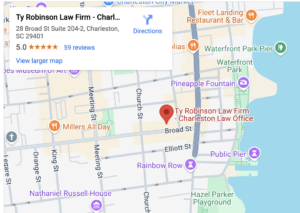Ty Robinson | June 17, 2025 | Personal Injury

Hemiplegia is a loss of muscle control or paralysis on one side of the body. It is a serious condition that can lead to lifelong health problems. One type of hemiplegia, known as congenital hemiplegia, occurs within the first two years of life. Acquired hemiplegia develops due to illness or accident.
There are several causes of hemiplegia. Brain trauma is a leading factor. Hemiplegia can also be a warning symptom of a stroke.
The Causes of Hemiplegia
Brain infections, brain tumors, and genetic mutations are rare causes of the condition, but they do occur. Two of the most common causes are brain trauma and stroke.
Brain Trauma
Any sudden impact to the head can cause trauma to one side of the head and lead to hemiplegia. Auto accident victims, athletes, and those who’ve been injured in slip and fall incidents are all at risk.
Stroke
Approximately 795,000 people have a stroke every year in the U.S., and it’s a leading cause of hemiplegia. Strokes can be caused by high blood pressure, heart disease, and other health conditions, but they can also be caused by trauma to the head or neck. For example, experiencing severe whiplash during a motorcycle accident or car accident could affect the oxygen supply to the brain and lead to a stroke.
Spinal Cord Injury
Injury to the spinal cord can interrupt the flow of blood and oxygen to the brain, potentially causing complete or partial paralysis, including hemiplegia.
The Effects of Hemiplegia
Hemiplegia refers to paralysis on either the right or left side of the body. If damage occurs on the right side of the brain, the left side of the body will be affected, and vice versa. It may involve the face, arm, or leg on the affected side of the body in a variety of ways.
People experience hemiplegia differently depending on the severity of the condition and which parts of the brain have been damaged.
Symptoms of hemiplegia can include:
- Poor balance
- Muscle weakness on one side
- Muscle stiffness on one side
- Difficulty walking
- Loss of motor skills
- Complete paralysis on one side of the body
When the condition is caused by brain injury, symptoms like memory or speech problems may accompany hemiplegia. It is not a progressive disease. The symptoms don’t get worse over time.
Treatment and Costs of Hemiplegia
Treatments for this condition differ according to the cause. In some cases, hemiplegia symptoms can be improved or even cured. However, if it’s caused by permanent damage to the nervous system, hemiplegia symptoms will likely remain for a lifetime.
Rehabilitation may include a variety of therapies, such as:
- Physical therapy
- Occupational therapy
- Symptom management
- Medical equipment
- In-home medical care and/or household assistance
The individual may be disabled and need help applying for disability, or they may be able to return to work if certain accommodations are possible. Specialized equipment may be needed to help with daily functions inside or outside of the home.
The medical costs associated with hemiplegia may be astronomical. Medical bills can pile up quickly, especially if the person is unable to work while rehabilitating. If the condition was the result of an accident or someone else’s negligence, filing a lawsuit for financial compensation may be the right course of action.
Contact Our Charleston Personal Injury Attorney at Ty Robinson Personal Injury & Car Accident Law Firm Today
People with hemiplegia can still enjoy a full life, but they may need medical support for the rest of their lives. Seek emergency medical attention if you or someone you know experiences the symptoms of this condition, especially if they have risk factors for stroke or have recently been in an accident.
If you were injured in an accident in Charleston, South Carolina, and need legal help, contact our Charleston personal injury attorneys at Ty Robinson Personal Injury & Car Accident Law Firm to schedule a free case review today.
Ty Robinson Personal Injury & Car Accident Law Firm
28 Broad St Suite 204-2
Charleston, SC 29401
(843) 278-2222



